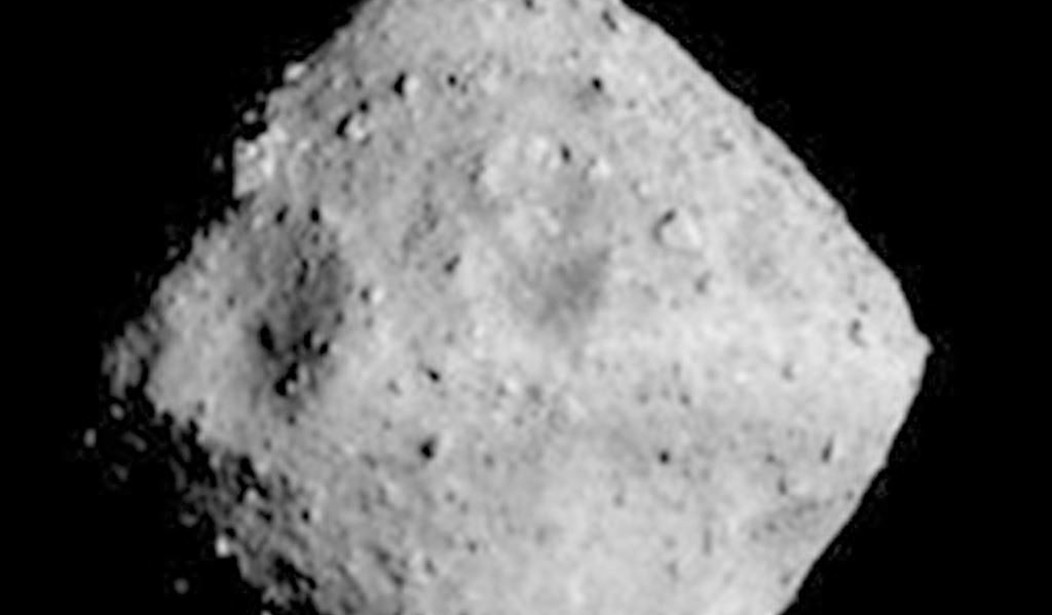Whoever was responsible for writing the headline to this article at Esquire clearly knew what they were doing because I clicked on the link immediately. “A huge asteroid almost hit earth but NASA didn’t detect it until a day later.” There are probably a few more alarming things to hear, but not all that many. Digging into the details of the article, however, the title did overstate a number of things. Still, the basic message they are getting across is a valid one and this is a subject that our scientists will need to take seriously going forward. The near-miss happened on September 16.
A giant asteroid almost hit earth on September 16, but because it came from the direction of the sun, scientists missed it
If you heard a whooshing noise recently, you weren’t imagining it—there was indeed a gigantic asteroid that almost hit earth this month. And NASA didn’t see it coming…
The asteroid tracker EarthSky has it listed for September 16, but NASA only detected it a day later.
Yep, we almost got hit by an asteroid that we didn’t even notice.
First, we should clarify some of the alarming descriptions from the headline and the introductory paragraphs. Calling the asteroid either “huge” or “giant” is probably a bit misleading. The size was listed as a length of “around 42 to 94 m, with a diameter of around 68 m.” At first glance, I thought they were saying 94 miles, which would have been alarming indeed. The one that killed the dinosaurs is believed to have been at most around 9 miles across. A 94-mile wide asteroid would basically be a small dwarf planet and would likely destroy the Earth completely. But they actually meant meters, so the asteroid was roughly the size of the Great Pyramid.
Don’t get me wrong. If an asteroid of that size struck the surface of the planet, you wouldn’t want to be under it. It would create a significant boom. But NASA defines asteroids of that size range as being likely to produce “localized damage.” They believe asteroids of one kilometer or more would be required to create global effects.
As to “passing close by” Earth, I suppose that’s accurate, but we’re using the word “close” in space travel terms. At its closest, the asteroid was still roughly 120,000 miles from the Earth, or roughly halfway between us and the moon. That’s still relatively close, but it wasn’t exactly skimming off the top of our atmosphere.
The interesting detail in this report, however, is the reason that our astronomers didn’t detect it until it was passing by. The vast majority of asteroids come in from the outer solar system, either the asteroid belt or the Ort Cloud. That allows us to detect them early if we’re being vigilant. This one came in close to the sun, blinding our telescopes and not giving us a hint of its arrival until it was basically upon us.
Clearly, we need to be able to do a better job of detecting these things that come in “from the back” (as astronomers describe it) because we need more notice than that. Scientists are currently testing a variety of methods of changing the course of asteroids to prevent collisions. We’ll be launching the DART probe (Double Asteroid Redirection Test) next month, targeting a small asteroid roughly twice the size of the one that just missed us. They are using the not-very-elegant method of attempting to ram the probe into the asteroid at more than six kilometers per second to see if they can significantly alter its course.
But the problem with DART and all of the other plans to save us from an impact currently under consideration is that you need to start working on them well in advance. Even if this works, the asteroid’s course will only be changed fractionally. That’s all you need if you have a year and tens of millions of miles for the course correction to add up. But if we find out about one of these things with only a few days’ notice, there’s not a thing we can do.
Of course, now that I stop to think about it in those terms, I’m not sure if we’d want to know that there was a significant one coming at us from out of the sun and arriving in a few days. What’s the point if there’s nothing you can do to stop it?









Join the conversation as a VIP Member